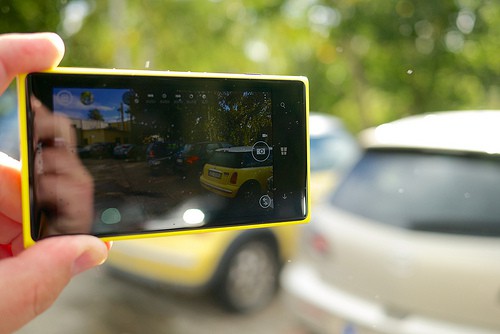As of August 2013, around 10,000 people have test-driven Google Glass devices as part of Google’s Explorer program. According to rumors, Google may release a 2.0 edition of Glass as early as 2014. With the release of Google’s Mirror API, developers have begun creating apps for Glass called “Glassware.” Already, some developers are considering how Glass could be used to catch criminals.
The device itself poses some interesting cyber crime risks. Advanced network security experts have already begun discussing the possibility of attackers exploiting fake Wi-Fi networks to take over Glass devices. While developers always worry about cyber security risks, most experts are focused on using Glass to fight everyday crimes.

Google Glass and Criminals
A software development company called Hyperlayer has a smartphone app that can identify people who have criminal records. Using facial recognition technology and coordinating with GPS and streaming video, the app provides both the name and the conviction of passersby that have criminal records. According to some sources, Hyperlayer is hacking this technology for Glass use, although Google says it will not allow facial recognition technology to be developed as Glassware (read more about how deep discovery prevents hacking and other attacks).
Despite privacy concerns around facial recognition technology, police could use the capability as a formidable crime-fighting tool. For example, a police officer wearing Glass could determine whether a suspect has a criminal record before making an arrest. Knowing when a suspect has a violent criminal history could help officers to make better decisions when coordinating the arrest. Also, knowing that they were being recorded could also deter potential criminals before crimes happen.
Some industry watchers have proposed that video streaming apps like UStream or LiveCast could be updated to push videos of crimes in progress to police. By combining a streaming app with fitness tracking technology, Glass could record the moment that a victim’s heart rate jumps. Using voice commands, the user could also call 911. All of these applications could bring officers to the scene more quickly.
Google Glass and Officer Protection
Mobile video has drastically changed policing. In 2012, Pennsylvania resident Gregory Rizer was arrested after using his smartphone to record a police officer that was interrogating his quadriplegic friend. When Rizer complained to the mayor’s office about the incident, police arrested Rizer again, confiscated his cell phone and charged him under Pennsylvania’s wiretapping law. Eventually, police dropped all charges and returned Rizer’s cell phone. However, the police removed the SIM card before returning the device.
The ACLU filed a lawsuit against the police department, arguing that a police officer has no reasonable expectation of privacy and was therefore not protected by the wiretapping law. No determination was ever made regarding the officer’s interrogation methods, but in October 2013, the police department paid a $65,000 settlement to Rizer. If the officer had been required to wear Glass to record all interactions with suspects, then the police department might have saved a sizable chunk of money.
Glass provides a significant opportunity for police departments to protect their officers. Few officers have time to record an arrest in progress on their own smartphones. They may have video recording devices in their vehicles, but an arrest can take place outside of camera range. Officers wearing Glass could film an arrest from their own perspectives, protecting themselves against damaging and potentially incorrect eyewitness testimony. In addition, wearing Glass and knowing that their footage was audited could discourage officers from using unnecessary aggressiveness or force.

Privacy Concerns
While Glass has definite crime-fighting potential, many observers have pointed out the obvious privacy risks. Andrew Couts, writing for Digital Trends, has argued that Glass could create a nation of “Little Brothers” that may record people who haven’t actually committed crimes. These citizen vigilantes could flood police departments with unnecessary footage, turning everyday interactions into needless police investigations.
Because of the onslaught of Glass footage, police may have difficulty sorting real crimes from hours of nosy neighbor videos. At the same time, Glass’s potential for enabling evidence gathering, providing remote guidance to officers and delivering instant maps or floor plans during criminal pursuits and make Glass a tool that police departments should consider adding to their arsenals.
Google Glass photo by Loic Le Meur from Flickr.com
Smartphone photo by Karlis Dambrans from Flickr.com
 Gearfuse Technology, Science, Culture & More
Gearfuse Technology, Science, Culture & More


